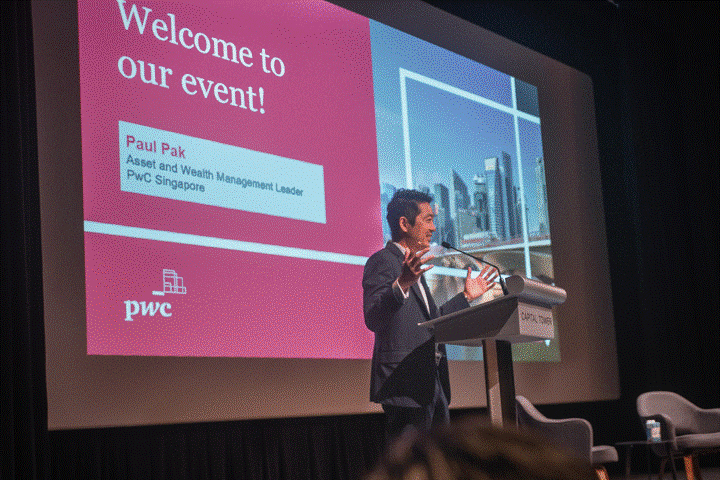Next up was a discussion on private markets and the assorted megatrends buffeting this investment segment, along with the future impact private markets may bring to bear across the industry.
Panellists for this were Mr. Ivan Lew; CEO of Shaw Investment, Mr. Yeo Wee Yap; Managing Director of SeaTown Holdings International, Ms. Fiona Cho; COO for Asia Pacific and Senior Portfolio Manager at PGIM Real Estate, and Mr. Chue En Yaw; Chief Investment Officer at Azalea Investment Management.
They were moderated by Ms. Maan Huey Lim; Asset and Wealth Management Tax partner at PwC Singapore.
Whilst it was noted that over sentiments are improving, with increased deal flows, quality assets being transacted, and financing being driven by equity rather than debt, participants observed that in the current post-pandemic environment, investors were concerned and preferred a ‘wait and see’ approach to determine where the best opportunities for private market investment would emerge from.
Said opportunities appeared to be driven by structural shift, with AI, ESG, infrastructure, and others featuring prominently, and PwC’s own forecasts around the growth in private market AUM reinforcing this belief.
As alternative investments remain the purview of HNWIs and institutional investors looking to diversify, moves into real estate, assisted by securitised bonds and fractionalisation, were frequently observed. Though there was an increased prevalence of strategies which looked to tap into retail investors via various channels.
These channels sought to leverage investor aggregation to reduce AML processes and lower the friction of investor capital calls, potentially opening up a whole investor segment to an investment category they have been excluded from.
Some niche areas existed in specific markets that had caught the attention of panellists, for instance, multi-family housing in Japan, APAC e-commerce platforms and players, data centres across the region, and living space in Australia.
Infrastructure was seen as a significant driver of alternative investment, though China, as a key driver of this via its Belt and Road Initiative, was an increasingly challenging market for private equity players to operate in due to tightening restrictions. It was noted this presented an opportunity for centres like Singapore to benefit as funds sought to domicile themselves outside of the Middle Kingdom to attract fundraising.
Southeast Asia was regarded as being in a private markets ‘sweet-spot’, as economic decoupling between China and other countries saw exports and FDI shift to these markets.
Despite the green shoots of recovery witnessed, panellists noted that headwinds remained, with rising interest rates, volatile currencies, and spillover effects from public markets all impacting the attractiveness and viability of private markets.



















